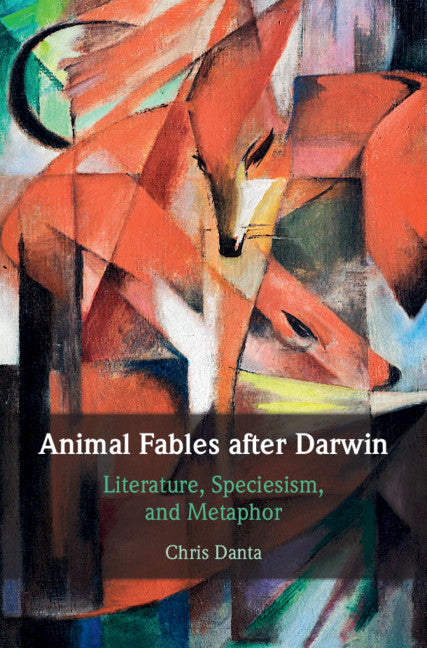Freshly Printed - allow 4 days lead
Couldn't load pickup availability
Animal Fables after Darwin
Literature, Speciesism, and Metaphor
A major critical reassessment of the fable and of the literary representation of the human-animal relationship after Darwin.
Chris Danta (Author)
9781108428200, Cambridge University Press
Hardback, published 19 July 2018
224 pages, 2 b/w illus.
23.5 x 15.6 x 1.7 cm, 0.47 kg
'Chris Danta brilliantly demonstrates that attention to animal lives in the post-Darwinian fable has the potential to generate strong new readings, not only of a ubiquitous yet neglected genre in Anglo-American literary criticism, but also of an ensemble of texts that for too long have been read primarily as ciphers for purely human concerns.' Jennifer McDonell, Social Alternatives
The ancient form of the animal fable, in which the characteristics of humans and animals are playfully and educationally intertwined, took on a wholly new meaning after Darwin's theory of evolution changed forever the relationship between humans and animals. In this original study, Chris Danta provides an important and original account of how the fable was adopted and re-adapted by nineteenth- and twentieth-century authors to challenge traditional views of species hierarchy. The rise of the biological sciences in the second half of the nineteenth century provided literary writers such as Robert Louis Stevenson, H. G. Wells, Franz Kafka, Angela Carter and J. M. Coetzee with new material for the fable. By interrogating the form of the fable, and through it the idea of human exceptionalism, writers asked new questions about the place of the human in relation to its biological milieu.
Prologue: uplifting animals
1. Looking up, looking down: orientations of the human
2. The grotesque mouth
3. 'The highest civilisation among ants': Stevenson and the fable
4. 'An animal among the animals': Wells and the thought of the future
5. Animal bachelors and animal brides: Kafka, Carter, Garnett
6. Scapegoats and scapegraces: becoming sacrificial animal in Kafka and Coetzee
Coda: 'Diogenes of the zoo'.
Subject Areas: Literary theory [DSA], Literature: history & criticism [DS], Literature & literary studies [D]


